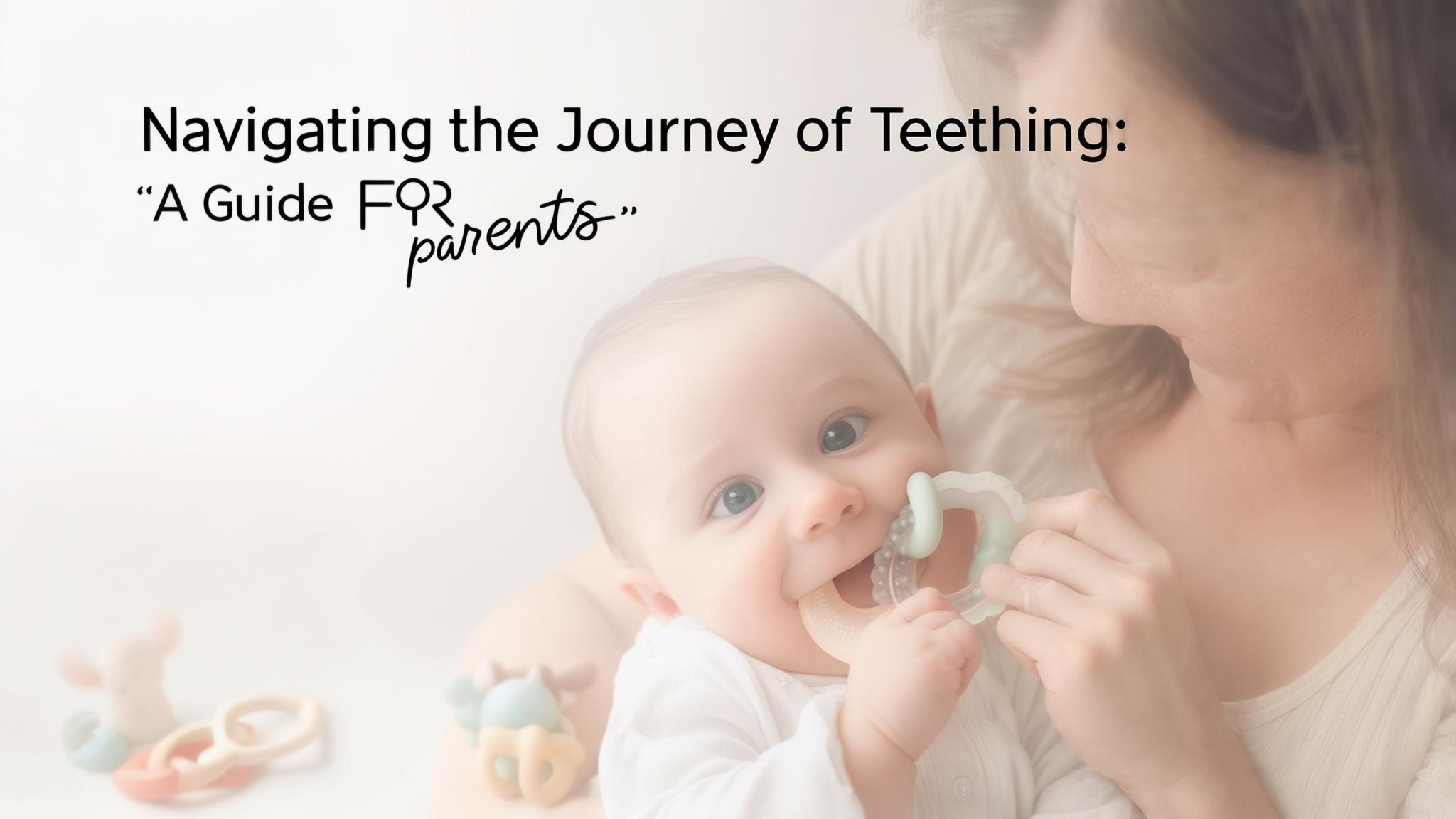Understanding Teething
Teething is a natural process that every baby goes through, marking the emergence of their first set of teeth. This process typically begins around six months of age, although some infants may start as early as three months or as late as twelve months. The sequence usually starts with the lower central incisors, followed by the upper central incisors, and continues until the molars appear in the toddler years.
Symptoms of Teething
Teething can be an uncomfortable experience for infants, and recognizing the symptoms can help parents provide the necessary comfort. Physical signs include swollen, tender gums and increased drooling, which may cause a mild rash around the mouth and chin. Behavioral signs often include irritability, increased fussiness, and disrupted sleep patterns, as the discomfort can make it challenging for babies to settle down.
The Impact of Teething on Infants
Teething can have both emotional and physical effects on infants. The discomfort may lead to increased crying and clinginess, as babies seek comfort from their caregivers. Physically, teething can cause changes in feeding habits, with some infants experiencing a decreased appetite due to gum tenderness.
For parents, teething can present challenges such as disrupted sleep and the need for additional soothing measures. It’s important to remember that while teething can be a trying time, it is temporary, and there are ways to ease the process for both the baby and the parents.
Soothing Techniques for Teething Pain
Home Remedies
Cold objects can be particularly soothing for teething discomfort. Chilled teething rings or a cold, wet washcloth can help numb the gums and reduce swelling. Gentle gum massage with a clean finger can also provide relief by applying light pressure to the sore areas. Additionally, breastfeeding or bottle-feeding can offer comfort, as the sucking action helps to soothe the gums.
Over-the-Counter Solutions
There are several teething gels available that can temporarily numb the gums, although parents should use them cautiously and according to the instructions. Pain relievers like acetaminophen can be effective in managing teething pain, but it’s crucial to follow the recommended dosage and consult with a healthcare provider if unsure.
Natural Remedies
Some parents opt for herbal options like chamomile, known for its calming properties, to help soothe a teething infant. Essential oils should be used with caution, as they can be potent and may not be suitable for all babies.
When to Seek Professional Help
While teething is a normal developmental stage, there are times when it’s advisable to consult a dentist. Excessive crying or inconsolable behavior may indicate that the pain is more intense than usual. Additionally, a high fever or other unusual symptoms could signal an underlying issue that requires professional attention.
A pediatric dentist can offer guidance and reassurance during the teething process, ensuring that any concerns are addressed promptly.
Preventive Measures and Oral Hygiene
Maintaining good dental hygiene is important even before your baby’s teeth have fully erupted. Gently cleaning the gums with a soft, damp cloth can prevent bacteria buildup. Once teeth appear, using a small, soft-bristled toothbrush can help establish a routine.
Encouraging dental care routines early on sets the foundation for lifelong oral health. Parents should aim to make these activities fun and engaging to foster positive associations with dental hygiene.
Conclusion
Teething is a significant milestone in your baby’s development, and understanding how to manage the associated pain can make the process smoother for everyone involved. By employing various soothing techniques and being attentive to your baby’s needs, you can help alleviate discomfort and promote a positive experience.
Remember, being proactive about your child’s dental health from an early age lays the groundwork for a healthy smile in the future. Stay informed, stay patient, and know that this phase, like many others in childhood, will pass.
References
- American Academy of Pediatrics. "Teething: 4 to 7 Months." HealthyChildren.org.
- Mayo Clinic Staff. "Teething: Tips for Soothing Sore Gums." Mayo Clinic.
- National Institute of Dental and Craniofacial Research. "Baby Teeth." National Institutes of Health.

